50 YEARS OF COMMANDING
CULINARY

…and we’re just getting started.
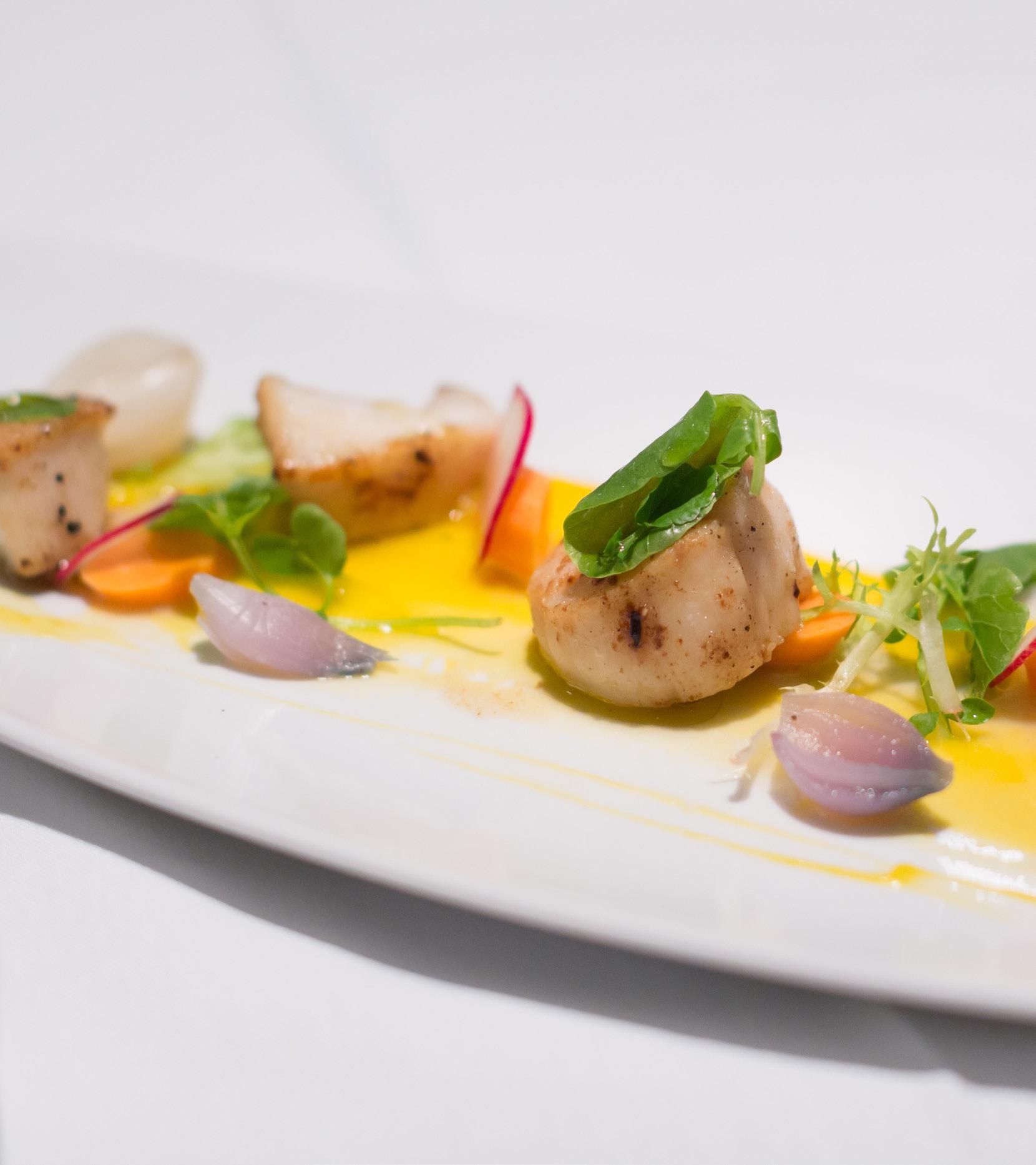

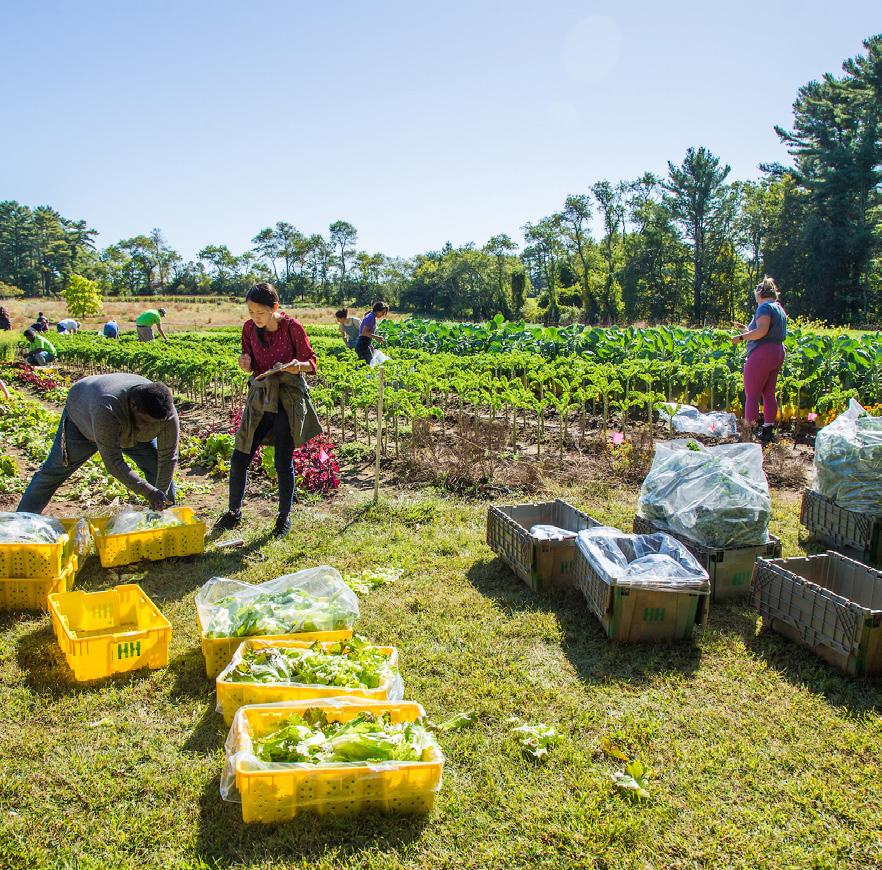

TIME FLIES WHEN YOU’RE HAVING FUN
We’re celebrating 50 years of providing world-renowned culinary education to people who are passionate about food –people just like you. Throughout these storied decades, some of the world’s greatest chefs started their journey in our kitchens, countless dishes were designed, and we never stopped seeking new ways to think about food.
Today, the College of Food Innovation & Technology (CFIT) represents that 50 years’ worth of growth and evolution. It’s a place where your culinary education extends far beyond the kitchen into economics, history, health, art, sustainability and more. Sounds like fun, right? Read on to see what JWU can do for you.

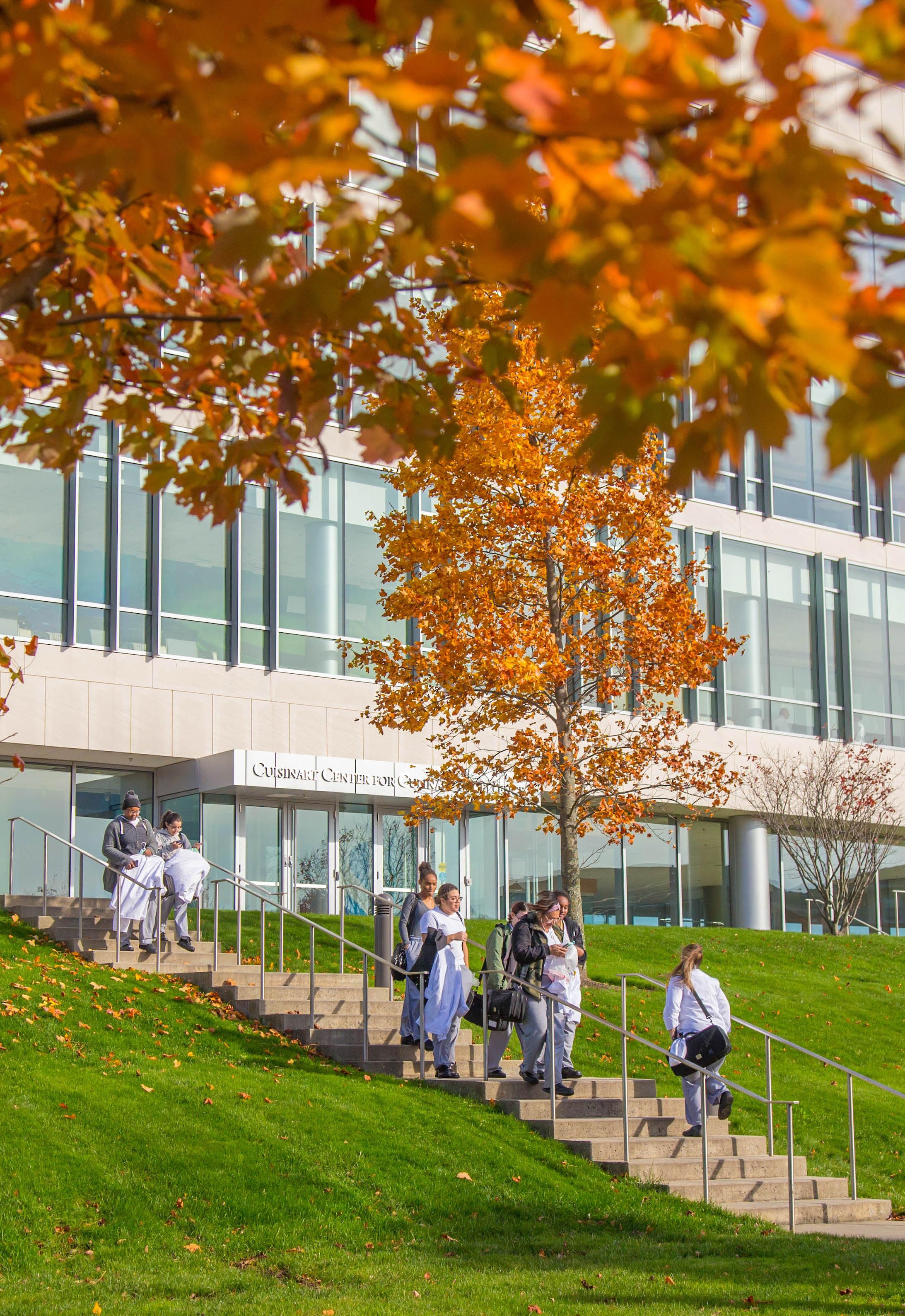
We set ourselves apart from other culinary schools in many ways — all so we can help students set themselves apart when they head into the world.
A comprehensive university, a well-rounded education
A culinary education is unique to other paths, but it should still be filled with opportunities to explore different topics, make new friends, join clubs and organizations, play sports and network with industry professionals. We believe going beyond the kitchen will make you a better chef in it.
Two cities to choose from — each with a flair for food
Providence, Rhode Island and Charlotte, North Carolina have become foodie destinations thanks to their wide variety of restaurants and cuisines. JWU students and alumni help power these dynamic food scenes. See it for yourself by planning a visit at jwu.edu/visit

An emphasis on sustainable practices in food
Our students learn how to source, prepare and cook food responsibly and sustainably. They also get to experience local food systems firsthand and discover how they can play a part in protecting and improving them. Programs like Sustainable Food Systems focus heavily on these practices, but every CFIT major will learn about sustainability throughout their studies.
We stand out so that you will, too.
“Culinary sustainability is very upcoming in the industry and very necessary. The [Sustainable Food Systems] program is focusing more on the environment. It’s important for farms and other businesses to include sustainability in their processes and to understand the food system as a whole. People don’t have a picture of the whole food system, and this major helps them understand.”
 Brianna Pinder ’24, Culinary Arts and Sustainable Food Systems
Brianna Pinder ’24, Culinary Arts and Sustainable Food Systems

Turn up the heat in
CULINARY ARTS
Chefs need to have expertise with professional equipment, scaling recipes, knife skills, food safety and sanitation. You’ll cover all this and more in your first year.

Once you strengthen the basics, your coursework expands to operations and management along with enhanced preparation techniques, nutrition studies and an internship so you are even more prepared for your career. Along the way, you’ll be guided and mentored by experienced culinary faculty with years of industry experience.


Sweet dreams are made in
BAKING & PASTRY ARTS


It turns out that all those delicate, beautiful desserts require a lot of science and precision — but you’ll learn it all here when you master ingredient properties and characteristics, the baker’s percentage system, mixing techniques, controlled fermentation, methodologies and more. You’ll also develop dessert menus, implement cost controls, and even earn certifications, becoming a valuable addition to any professional kitchen.

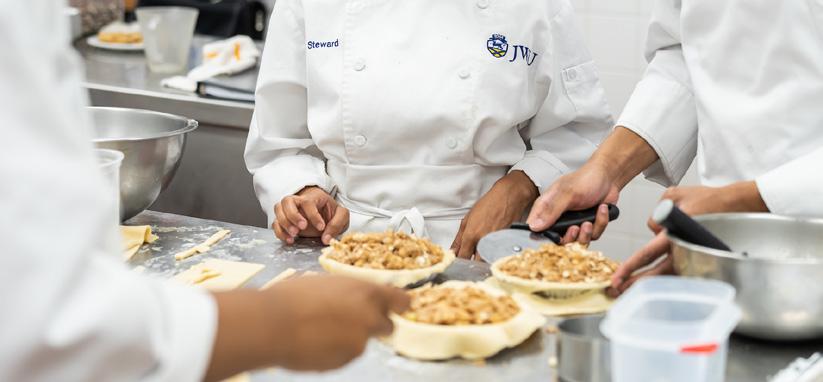

A strong start can take you anywhere
Once you’ve completed the first-year academic experience, which is common to all CFIT programs, you’ll have the chance to either delve deeper into the major you initially applied to or jump to a different major without missing a beat.
Every program is interdisciplinary. This approach will allow you to investigate the intersection of food with everyday life. Explore topics such as product development and design, food innovation, safety, sustainability, production, distribution, policy, medicine, business, entertainment, economics, nutrition, science, food insecurity and more.
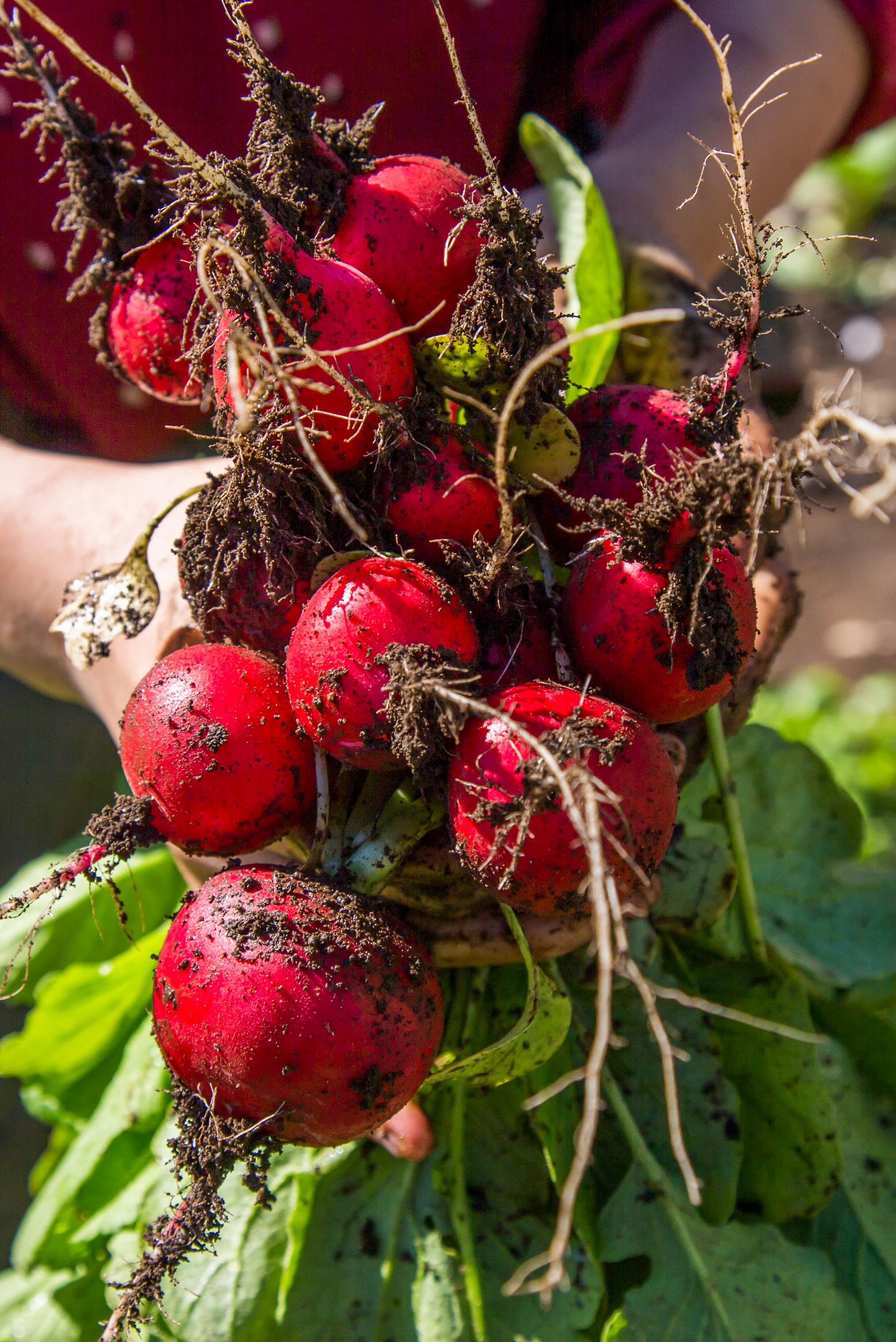


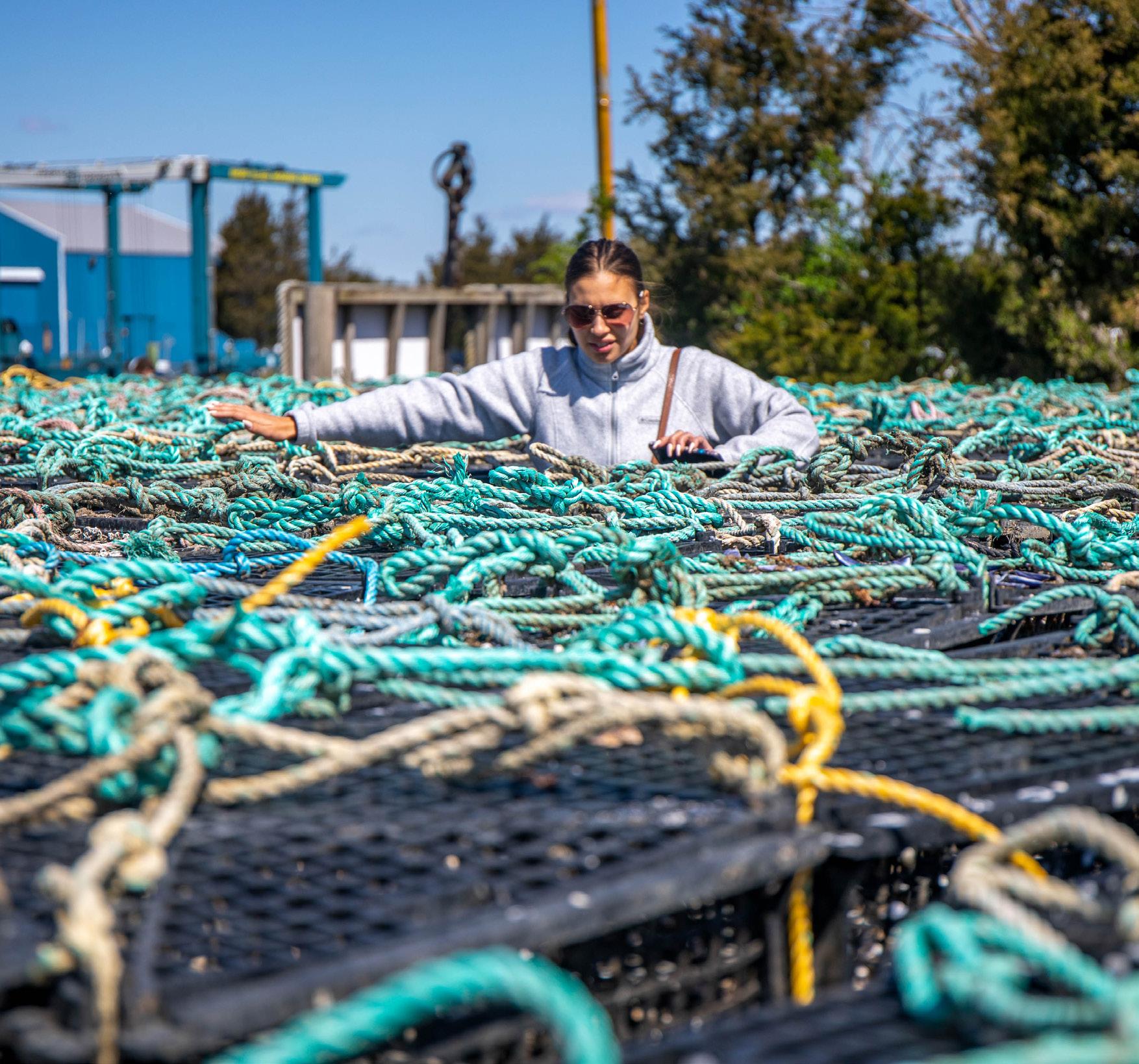
Johnson & Wales University does not discriminate on the basis of age, color, disability, gender identity or expression, genetic information, national origin, actual or potential parental, family, or marital status, including pregnancy and related conditions, race, religion, sex, sexual orientation, status as a protected veteran, or any other legally protected status in its programs, activities or employment, as required by Title IX and other laws. Inquiries about nondiscrimination can be made to:
